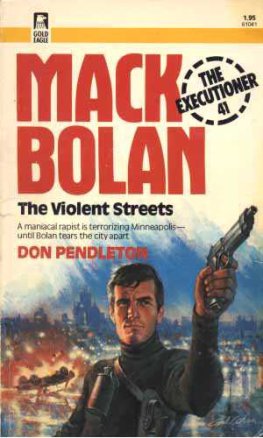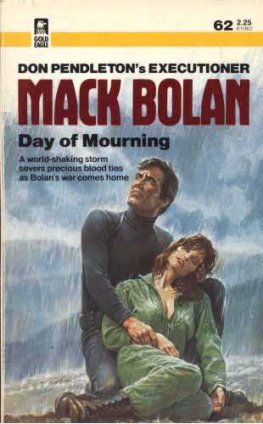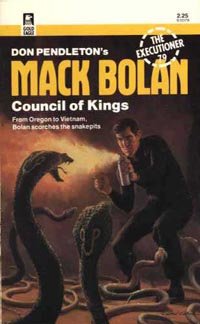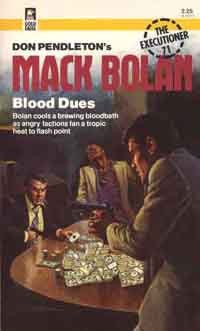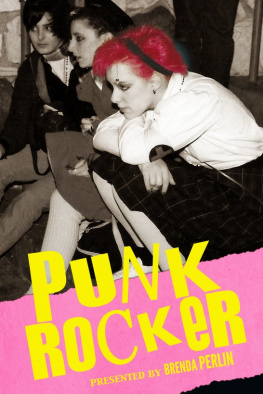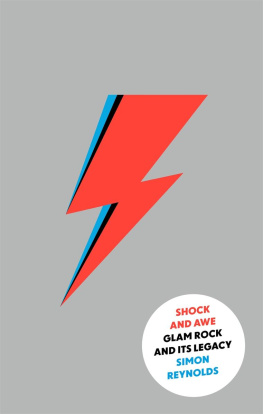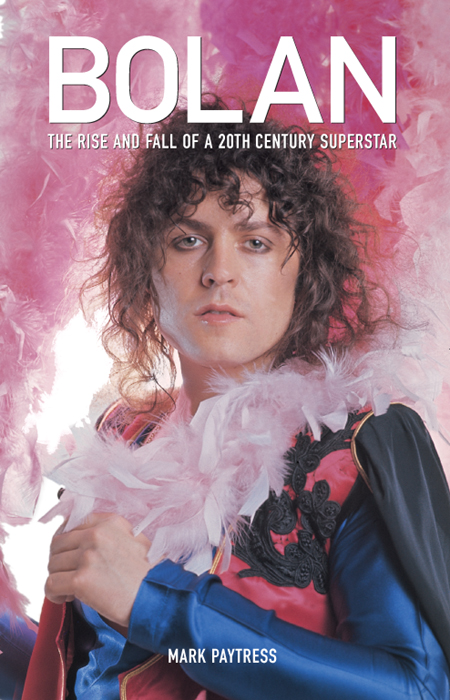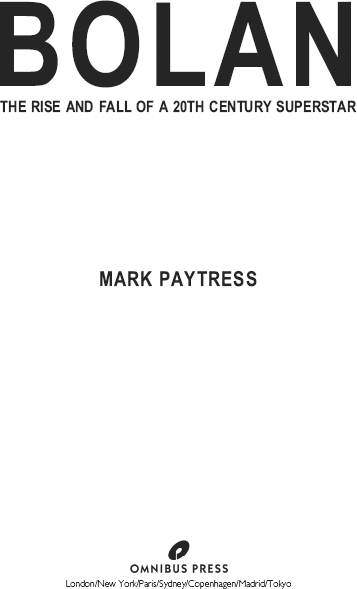Prelude
Light emanated from him. He had the most charisma of all the stars Ive met or worked with.
Tony Visconti, producer
He had a wonderful life and he lived life to the full.
Gloria Jones, partner
When I convinced Chris Charlesworth at Omnibus Press that my 1992 Marc Bolan biography ought to be back in print again, we envisaged little more than a handful of minor changes: weeding out inaccuracies, working in details that had come to light since then and, perhaps, a quick stylistic once-over. Four months later, having dedicated virtually every available waking hour to the project, the result is an entirely different book 50% bigger and, I hope, rather more authoritative.
A day spent at the National Sound Archive prompted a complete overhaul of my research materials; within a month, I had amassed a huge, 30,000-word document that I intended to work into the original text. Then, I turned to the original biography. Now a decade old, Twentieth Century Boy: The Marc Bolan Story seemed convoluted and tired. I had no alternative but to consign huge chunks to the wastebasket, and use the basic information, the musical critiques and the cultural contexts as notes for what I now regarded as a completely different book. Marc Bolans life storsy was no longer going to be remastered; it was having to be rebuilt again from scratch and with a new title, too.
Having bitten the bullet, I then approached a couple of key interviewees missing from the original book. I was delighted when Marcs partner, and mother of his son, Gloria Jones agreed to come on board. Insisting that I only wanted to pursue the truth, that a cosy, crowd-pleasing version of events does no one any favours, she nevertheless opened up with remarkable generosity during a short series of lengthy, long-distance telephone conversations. I hope that her trust in me has been vindicated. Mick Gray, who was Marcs personal assistant and executive tour manager between 1971 and 1976 and who spent as much time with him during those years as anyone did, has also given me many new insights. As a consequence, the latter half of the book which was certainly the weaker part back in 1992 is now virtually unrecognisable.
Quite a few people offered their condolences when I told them I was about to revisit an old book project. They neednt have done, for despite the time limitations, the formidable task turned out to be an often exhilarating experience.
Thats partly because the Marc Bolan I have discovered this time round is an immensely more complicated person than the 1992 model. His life spans one of the most vibrant eras in British culture. There is an even greater wealth of sources on record and tape, in private papers and commercial magazines than ever before, and many potential interviewees all eager to tell me how he touched their lives. Bolan was a pop idol in the sense that, like Jimi Hendrix and Elvis Presley, he was simply one of those characters that was a star almost by nature. The fame was simply a byproduct that came later.
Bolan was rich in extremes and contradictions. He was fascinatingly flawed and a fearless interviewee; deadly ambitious and, beneath that flashy exterior, painfully vulnerable. He could be both creative and crass, a peacenik with a streak of viciousness. Often brilliant, sometimes bland, he made some great records and more than a few lousy ones. In public, he could be an ego monster; at home, he became a crushed little Mark Feld whod tell his cassette recorder just how lonely he was.
Marc Bolan relished change. Restless and impatient, he was forever in search of something. In my search for Marc Bolan, I too have incorporated many changes. Often, theyre minor ones, such as my different take on Solid Gold Easy Action. Essentially, though, the canvas has been wiped clean to allow a more accurate and hopefully entertaining portrait to emerge. Ive finished the book firm in the belief that the life and work of Marc Bolan holds more fascination for me now than its ever done. I hope you find something of that in the book, too.
Mark Paytress, London, May 2002.
1
Sweet Little RocknRoller
When I was younger I certainly thought I was a superior sort of being. And I didnt feel related to other human beings I created a world where I was king of my neighbourhood.
Marc Bolan (1972)
The Greek artists, the tragedians for example, poetised in order to conquer; their whole art cannot be thought of apart from contest ambition gave their genius its wings.
Friedrich Nietzsche, Human, All Too Human (1878)
At nine years old I became Elvis Presley.
Marc Bolan (1972)
When Marc Bolan exploded so spectacularly all over the front pages during 1971 and 1972, huge chunks of his immediate past were virtually erased from history. The T. Rex Superstar as a bongos-in-the-dirt merchant performing to indifferent festival goers as Tyrannosaurus Rex? It was messy and low achieving, and besides, the truth could be easily corroborated. Bolan preferred to skip these years of hippie humility and instead let his keenly developed imaginative talents loose on the darker continent of his distant past. For an audience barely able to recall The Beatles without beards, Bolans yarns provided a thrilling portrait of life as a permanent revolution of the self, each costume change bringing with it an entirely new world.
Cynics looked at the credentials of this supposed Superstar a bare handful of chords, a clowns wardrobe and more front than Jayne Mansfield and roared. Bolan had effected the most shameful volte-face since the Soviet Union signed a pact with Nazi Germany in 1939, they claimed. Even better, for a rock press reduced to interminable profiles of Supersessionmen, this apparent charlatan of the most insincere kind was photogenic, popular and eminently quotable.
The creation of Marc Bolan: Superstar was as crucial to the health of the pop press as it was to a teenage audience desperate for someone to encourage and inspire their fantasies. Despite spending much of his life gazing up at the stars, the reality of Superstardom stunned Bolan too even though hed been playing the part since the late Fifties as if it had been his God-given right.
The life and death of Marc Bolan is a gutter-to-glitter opus rich in all the pleasures, and many of the pitfalls, that life can offer art and ambition, excess and hubris, mythology and, finally, tragedy. Notoriously economical with the truth, Bolan took great delight in obscuring the details of his tortuous path to fame with a repertoire of preposterous stories and golden one-liners, all grist to the illusion that Superstardom and nothing less than Superstardom was his destiny. I was always a star even if it was only being the star of three streets in Hackney, hed boast proudly on many occasions.
That much, at least, is true: Marc Bolan was working class and enjoyed premonitions of grandeur from an early age. But did he really play skiffle with Helen Shapiro? Roadie for Eddie Cochran? Audition at the 21s while still in short trousers? Was he really Londons sharpest Mod at 14? Or commanding four-figure fees for modelling assignments a year later? By the age of 17, he was practising the black arts with a cannibalistic wizard in Paris or so he claimed. How did that tally with those heavy hints of French ancestry? Born To Boogie? Well, maybe. He certainly wasnt born Marc Bolan. According to official records, Marc was born Mark Feld in Hackney, east London, the second and younger son of a lorry driver and his market-stallholder wife.


